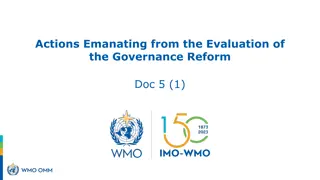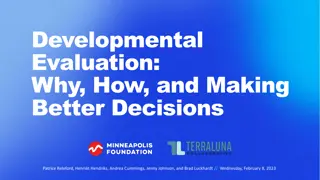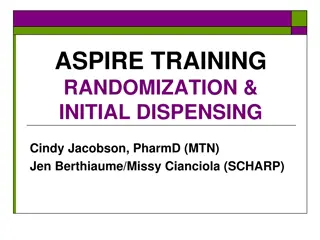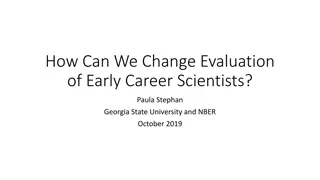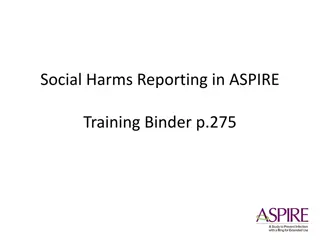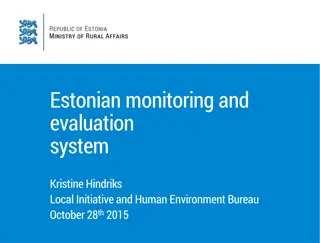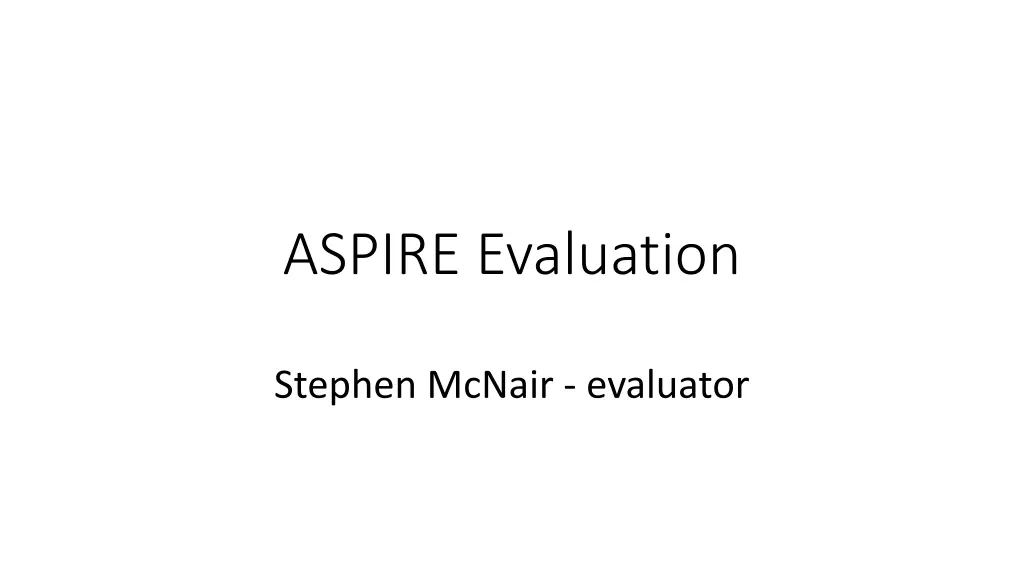
Understanding Active Ageing Interventions in Industrial Relations
Explore the processes of developing active ageing interventions within industrial relations to promote sustainable work opportunities for older employees. Investigate the impact, challenges, and aspirations of social partners in implementing collective agreements for active ageing within the workforce.
Uploaded on | 0 Views
Download Presentation

Please find below an Image/Link to download the presentation.
The content on the website is provided AS IS for your information and personal use only. It may not be sold, licensed, or shared on other websites without obtaining consent from the author. If you encounter any issues during the download, it is possible that the publisher has removed the file from their server.
You are allowed to download the files provided on this website for personal or commercial use, subject to the condition that they are used lawfully. All files are the property of their respective owners.
The content on the website is provided AS IS for your information and personal use only. It may not be sold, licensed, or shared on other websites without obtaining consent from the author.
E N D
Presentation Transcript
ASPIRE Evaluation Stephen McNair - evaluator
Aim The aim of the project is to understand processes through which social partners develop, pilot and implement active ageing interventions (including collective agreements) and reorient away from a collusion toward early retirement. Active ageing means helping people stay in charge of their own lives for as long as possible as they age and, where possible, to contribute to the economy and society. DG Employment, Social Affairs and Inclusion
Research questions Our research questions are: 1. How do different industrial relations (IR) structures facilitate and/or inhibit the dissemination and implementation of collective agreements on active ageing? 2. How are age and employment perceived in workplace contexts within different IR systems? How do employers and trade unions respond to EU and national social activation policies in creating sustainable work opportunities for older workers? How are the interests of older and younger workers negotiated and reconciled through workplace level mechanisms? How are good practice and innovations in the dissemination of active ageing approaches shared between and within different national contexts and in Europe? 3. 4. 5.
Partners We hope to learn from and influence: Employers organisations Trades Unions In: Manufacturing Public sector
Contextual variables 1. 2. 3. 4. 5. 6. Project partners expertise, interests and needs Demography Welfare state models Industrial relations history Labour market issues - demand now and in the future, unemployment, age Constraints on change legal, institutional, practical, financial/pensions, public attitudes Role and scale of players - trades unions, employers, collective bargaining Nature and role of political/lobbying organisations Nature and role of research organisations 7. 8. 9.
Evaluation priorities A qualitative study. Evaluation is formative and summative how did the process work, what results did it deliver? 1. Compliance Did the project overall do what was agreed? Did the individual partners do what was agreed? Were the deliverables produced? How far were the objectives achieved? What was not achieved and why? 2. Aspirations What change and learning did the partners hope for? How far were these achieved? 3. Unintended outcomes good and bad 4. Impact and sustainability What change did we seek and what have we achieved? Will people use the findings what strategies work? Will any change created be sustained for how long? Were the aspirations realistic? (salience issue) 5. Impact on various partners
Evaluators interventions 1. 2. 3. Prepare and agree specification Survey team members ( regularly ) on progress, targets and milestones Survey workshop and roadshow participants written in native languages translation? Produce interim report what have we achieved, what remains, what might we change Produce final report. Contribute to dissemination - during project and afterwards 4. 5. 6. Attend meetings? How active observer or participant?
Various issues Dissemination monitor Moodle platform activity Facebook, LinkedIn, twitter, website Monitoring national activity who reports, how often, what form? Who is the audience? Why do they care? Who are the relevant social partners? Not monitoring budget? What do we know about the individual s experience, aspiration, happiness ..? Desk report end Month 6
Survey questions 1. What have you done which was specified in the work plan? 2. What relevant activity have you done which was not specified in the work plan? 3. What contact have you had with which partners with what effect? 4. What has changed? 5. Do you now want to change your plans, and why?
Active Aging Index 2014 Overall Employment participation Social Participation Independent healthy living Capacity for Active Ageing Poland 28 22 14 65 48 Spain 32 23 18 70 56 EU average 34 28 18 71 54 Italy 34 23 24 69 53 UK 40 36 22 74 61


